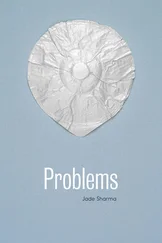Akhil Sharma - An Obedient Father
Здесь есть возможность читать онлайн «Akhil Sharma - An Obedient Father» весь текст электронной книги совершенно бесплатно (целиком полную версию без сокращений). В некоторых случаях можно слушать аудио, скачать через торрент в формате fb2 и присутствует краткое содержание. Год выпуска: 2000, Издательство: W. W. Norton & Company, Жанр: Современная проза, на английском языке. Описание произведения, (предисловие) а так же отзывы посетителей доступны на портале библиотеки ЛибКат.
- Название:An Obedient Father
- Автор:
- Издательство:W. W. Norton & Company
- Жанр:
- Год:2000
- ISBN:нет данных
- Рейтинг книги:4 / 5. Голосов: 1
-
Избранное:Добавить в избранное
- Отзывы:
-
Ваша оценка:
- 80
- 1
- 2
- 3
- 4
- 5
An Obedient Father: краткое содержание, описание и аннотация
Предлагаем к чтению аннотацию, описание, краткое содержание или предисловие (зависит от того, что написал сам автор книги «An Obedient Father»). Если вы не нашли необходимую информацию о книге — напишите в комментариях, мы постараемся отыскать её.
Ram Karan, a corrupt official in New Delhi, lives with his widowed daughter and his little granddaughter. Bumbling, sad, ironic, Ram is also a man corroded by a terrible secret. Taking the reader down into a world of feuding families and politics,
is a work of rare sensibilities that presents a character as formulated, funny, and morally ambiguous as any of Dostoevsky’s antiheroes.
An Obedient Father — читать онлайн бесплатно полную книгу (весь текст) целиком
Ниже представлен текст книги, разбитый по страницам. Система сохранения места последней прочитанной страницы, позволяет с удобством читать онлайн бесплатно книгу «An Obedient Father», без необходимости каждый раз заново искать на чём Вы остановились. Поставьте закладку, и сможете в любой момент перейти на страницу, на которой закончили чтение.
Интервал:
Закладка:
So the summer passed, slowly and vengefully, till the last week of June, when I woke one afternoon in love.
Ihad returned home that day after spending two weeks with my parents. Pitaji had been sick. I had helped take care of him in Safdarjung Hospital. For months a bubble had been growing at the base of his neck. We noticed it when it looked like a pencil rubber. Over two months it became a small translucent ball. If examined in the right light, it was cloudy from blood. We told Pitaji to have it examined. He only went to a herbal doctor for poultices. So when I opened the door late one night to find Kusum, I did not have
to be told that Pitaji had wakened screaming that his pillow was sodden with blood.
While I hurried clothes into a plastic bag, Kusum leaned against a wall of our bedroom drinking water. It was three. Rajinder sat on the edge of the bed in a blue kurta pajama. I felt no fear. The rushing, the banging on doors seemed to be only melodrama.
As I stepped into the autorickshaw which had been waiting for us downstairs, I looked up. Rajinder was leaning against the railing. The moon behind him was yellow and uneven like a scrap of old newspaper. I waved. He waved back. Then we were off, racing through dark, abandoned streets.
"Ma's fine," Kusum said. "He screamed so loud." She sat slightly turned on the seat so that she faced me. Kusum wore shirt pants. "A thousand times we told him. Get it checked. Don't be cheap. Where's all that black money going?" She shook her head.
I felt lonely talking of our father without concern. "He wants to die," I said. "That's why he eats and drinks like that. He's ashamed of his life, of his bribes, all that." This was one of the interpretations Pitaji had been suggesting for years, so it came unbidden to my tongue.
"If he was really ashamed, he'd change. He's just crazy."
I had not meant to defend Pitaji, for I did not think he needed defending. I viewed Pitaji impersonally, like a historical event.
"The way he treats Ma. Or the way he treated you. I remember when he'd stamp his foot next to you to see how high you'd jump. If he wants to die, he should do it quietly. You and Ma are cowards."
"Ma hates him," I murmured. The night air was still bitter from the evening traffic. I wondered if Kusum's capacity to expect things from people was due to her not being raised at home. I said, "We have to live with him. Why be angry?"
"That's what he's relying on. Be angry. It's a big world. There are a lot of people worth loving. Why waste time on somebody mediocre?"
In the hospital there was broken glass in the hallways. Someone had urinated in the lift. When we came into the yellow room that
Pitaji shared with five other men, he was asleep. His face looked like a shiny brown stone. He was on the bed nearest the window. Rajesh stood at the head of the bed. Ma sat at its foot, her back to us, looking out at the bleaching night.
"He will be all right," I said.
Turning toward us. Ma said, "When he goes, he wants to make sure we all hurt." She was crying. "I thought I didn't love him, but you can't live this long with a person and not love just a bit. He knew that. When they were bringing him here, he said, 'See what you've done, demoness.' "
The world slipped from under me. Ma had often said she hated Pitaji. I became dizzy. One second Ma was herself and then, the next second, there was no one in the world who loved me.
Rajesh took her away. Kusum also left, so that she would not be tired for her laboratory in the morning. I spent the rest of the night awake in a chair next to Pitaji's bed.
Around eight. Ma returned. While we were there, I kept looking away from her, because it made me too sad to see her face. I went to the flat. In the days that followed, it was I who replaced Ma in the morning. Kusum lived at home while Pitaji was sick, but she came to the hospital only once.
At night, Kusum, Rajesh, and I slept on adjacent cots on the flat's roof I sometimes played cards with Rajesh before going to bed. Kusum did not join us. Instead, every night, in preparation for going abroad, she read five pages of an English dictionary. She would write down the words she did not know. Kusum did not brag about her work as I might have.
I had thought I would be anxious alone with Pitaji. After Ma caught Pitaji and me, he and I were rarely together. When we were, it was either in public or with Ma in a nearby room from which she would periodically appear. Her surveillance made me feel that she had no faith in me. Now, despite the other patients in the room with Pitaji, I worried that since only Ma knew how dangerous he was, he might be able to hurt me. Even asleep, Pitaji looked threat-
ening. But the medicines kept him unconscious. When he woke, it was only to ask for water or food, then he fell asleep again. If I did not respond quickly enough to his demands, Pitaji screamed and I cringed.
Two or three days after I began staying with Pitaji, I was looking out the window at the autorickshaws lined up across the street when Pitaji shouted something at me. I turned to him, saw his mouth opening and closing like a digging machine or a dog, and I thought, I can leave right now. I can be home in twenty minutes in one of the autorickshaws. Suddenly I could see only Pitaji. Everything else vanished in a white rage. I felt as if I were tipping forward.
In a few hours the anger was gone. Once it stopped, I doubted its intensity.
When I replaced Ma the next morning, she greeted me by nodding toward Pitaji. "He won't die a natural death," she said with a strange pride.
The anger came back momentarily. I nearly said, "Let's kill him, then."
That afternoon Pitaji wasn't able to sleep. He told me again the story of how an exorcist had been called to beat his mother sane. Pitaji had been unable to watch. But he could not leave, for he felt he would be abandoning her. He stood in the doorway of their one-room mud house, looking out as she was beaten behind him. A crowd of children had gathered beyond the front yard. Whenever his mother screamed, the crowd whispered. Pitaji told the story calmly, as if it were someone else he was talking about. When he finished, he changed the topic. But Pitaji had told the story before, so the desire to create a reaction was obvious. I was looking out the window at the groundskeeper. He was walking around the compound sprinkling the dust with water from a bag the size of a man's body that was slung over one shoulder. When I did not turn around at the story's end, Pitaji said, "I'm sorry. I'm an old man. I shouldn't always be trying to get pity." This self-awareness made me feel for the first time that Pitaji need not have raped me. I had been raped
because for Pitaji no one was as real as he was, so nothing he did to others had substance. My anger kept me from moving. When I did begin turning to him, I was frightened I might stab him with the scissors on the stool near his bed.
This rage did not evaporate. I now hated Pitaji constantly. It was like a steady buzz in the background. Once, he screamed at me for not giving him his food on time, and I took his lunch and scraped it into the trash canister. "What will you eat now?" I said. I stopped giving him his lunch till he asked. If he forgot to take his medicines, I did not remind him.
I also imagined Ma getting pneumonia that caused her lungs to collapse. I liked to think of her struggling to breathe. But to neither one did I show my feelings directly. I might show disrespect or challenge Ma over every petty thing, but to say something directly about what Pitaji had done felt like the end of the world.
I did not see Rajinder for the two weeks I was with my parents. But thinking of Rajinder was a comfort, like the reality of the bed during malarial dreams.
My hatred was so constant that it was as if gravity had increased. It exhausted me. But when I slept, as soon as I gained a certain minimum relief, I woke. My eyelids sometimes twitched for a minute at a time. My temper was wild. Kusum suggested I should go to a doctor; I answered, "My eyelids twitch, Kusum, because I work all day while you read in your air-conditioned laboratory."
Читать дальшеИнтервал:
Закладка:
Похожие книги на «An Obedient Father»
Представляем Вашему вниманию похожие книги на «An Obedient Father» списком для выбора. Мы отобрали схожую по названию и смыслу литературу в надежде предоставить читателям больше вариантов отыскать новые, интересные, ещё непрочитанные произведения.
Обсуждение, отзывы о книге «An Obedient Father» и просто собственные мнения читателей. Оставьте ваши комментарии, напишите, что Вы думаете о произведении, его смысле или главных героях. Укажите что конкретно понравилось, а что нет, и почему Вы так считаете.












